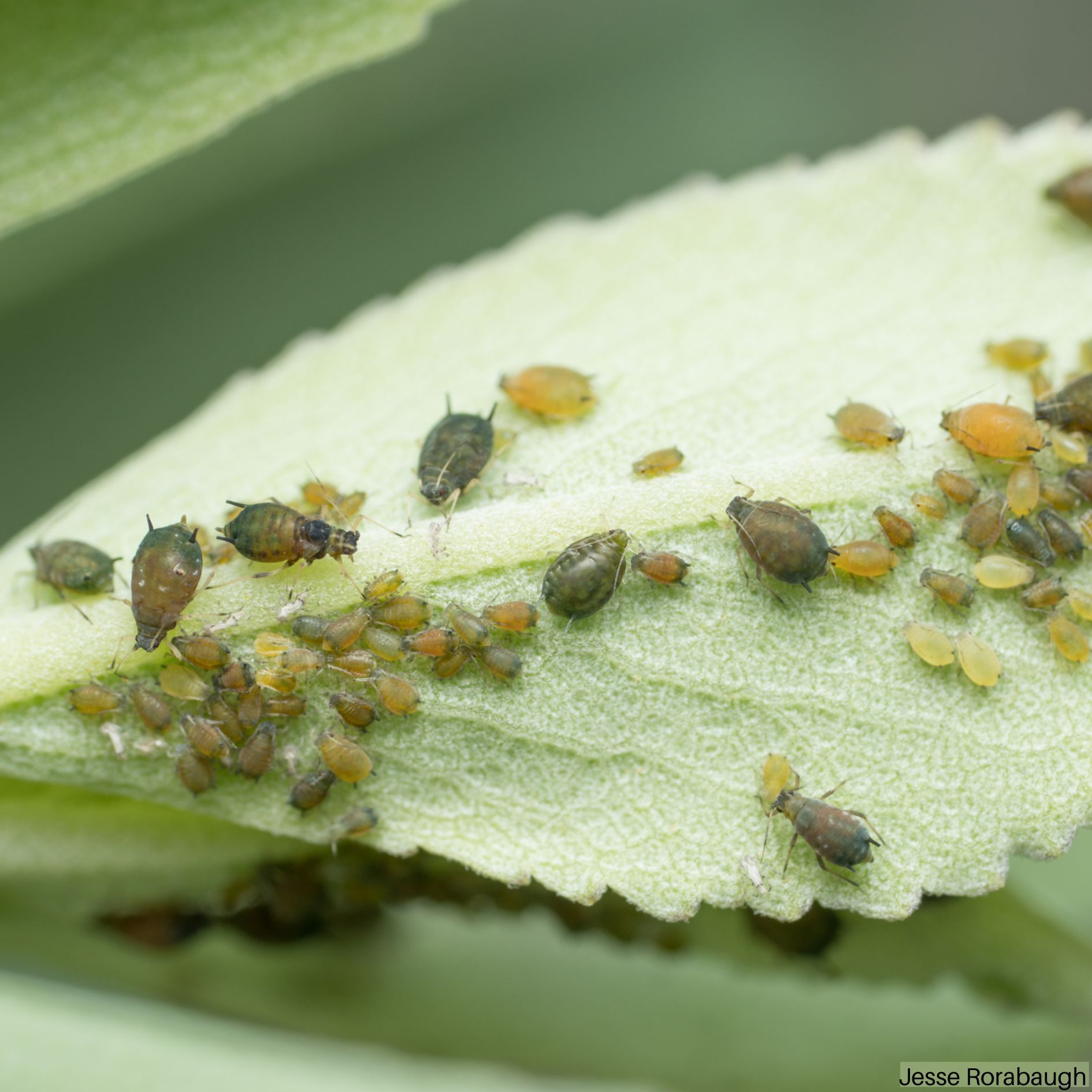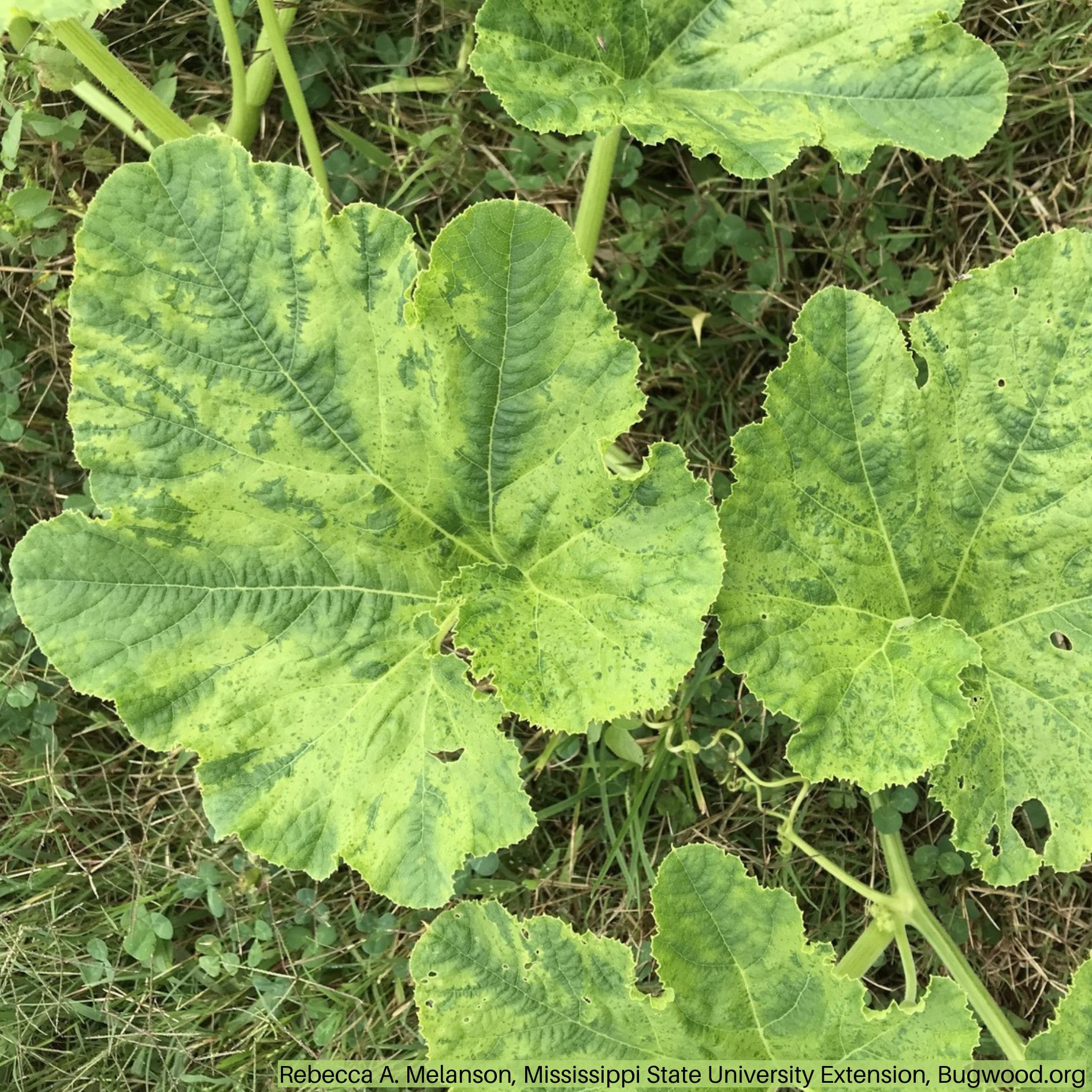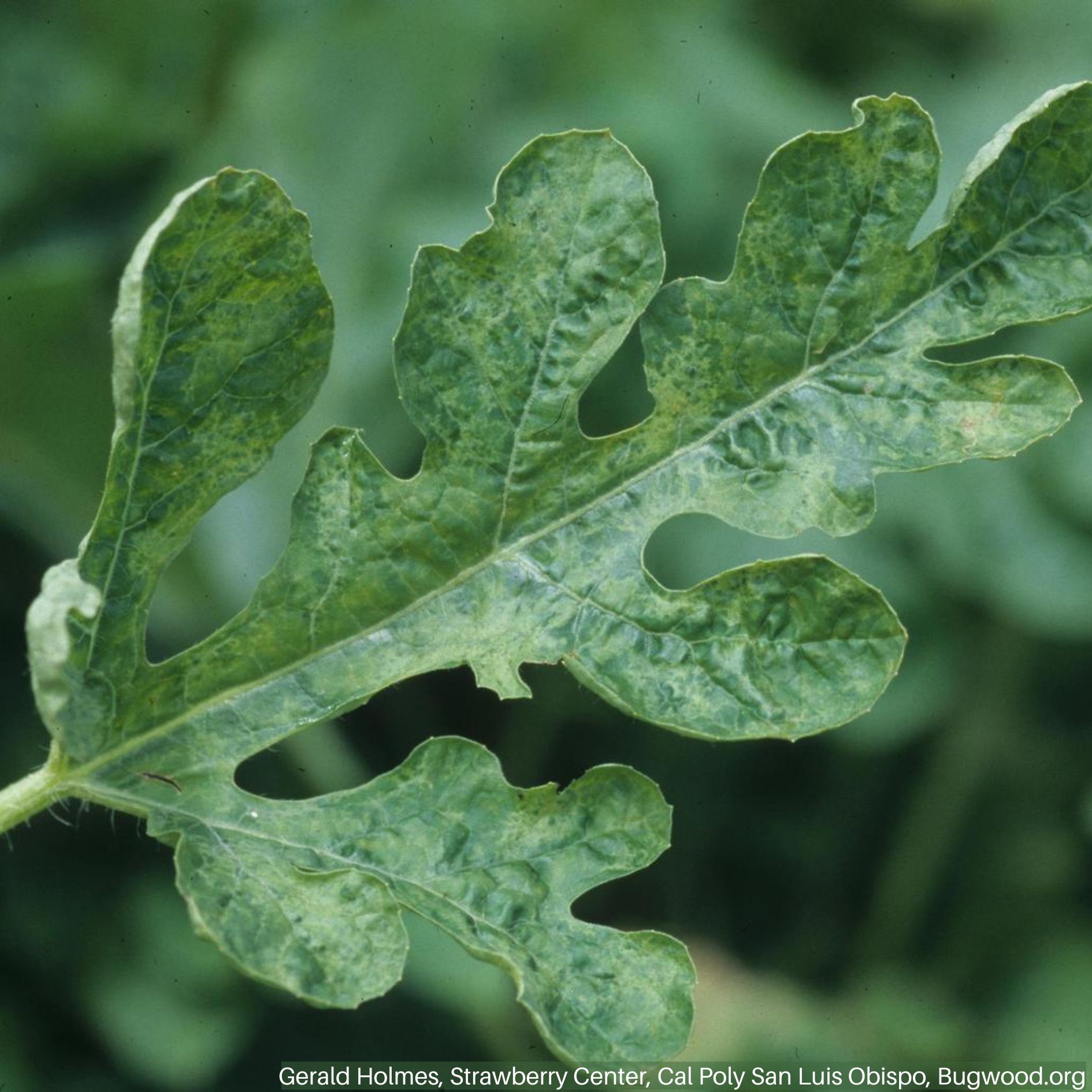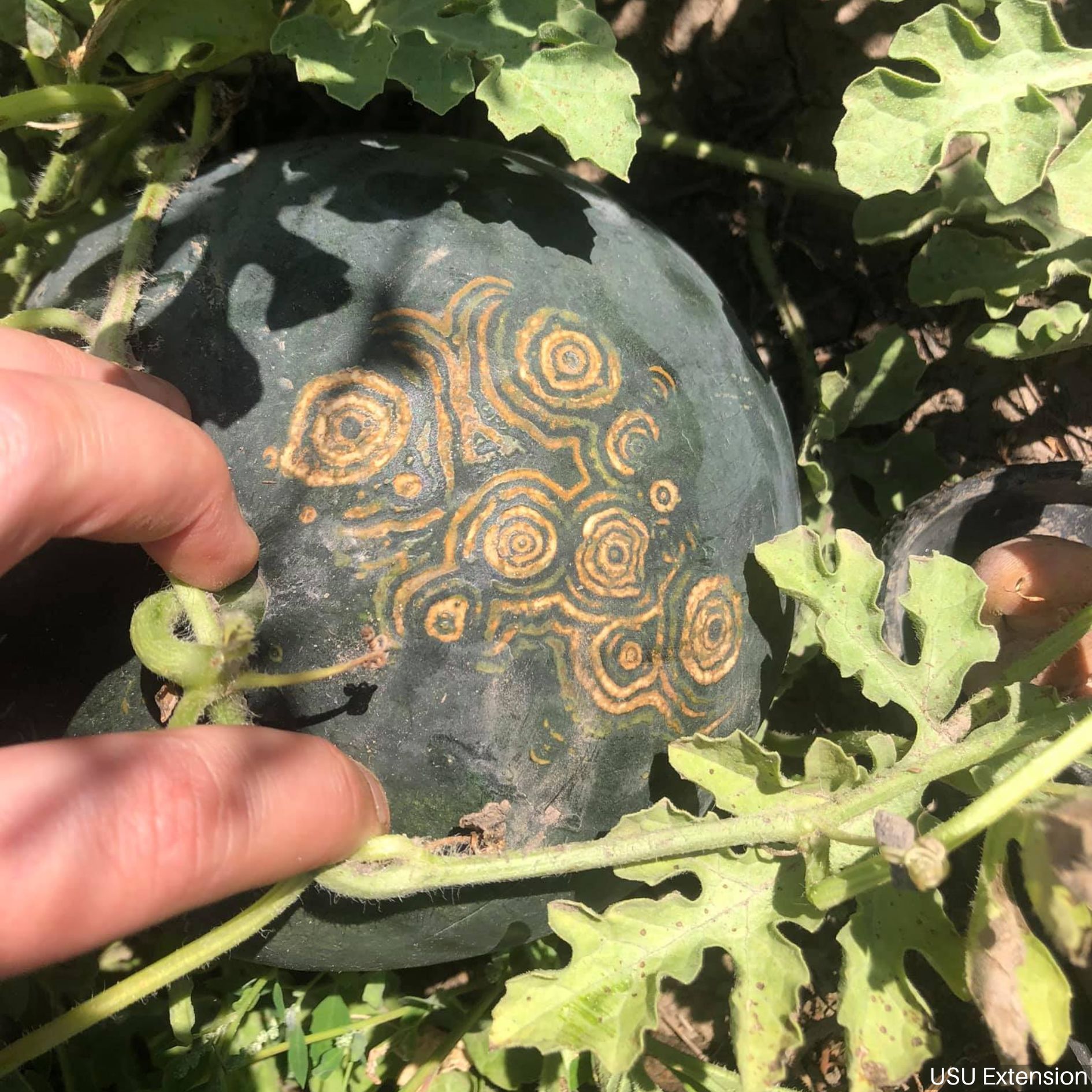Watermelon Mosaic Virus
 Melon aphids, a known vector of the disease.
Melon aphids, a known vector of the disease. Pumpkin with leaf discoloration.
Pumpkin with leaf discoloration. Mottled leaf coloring on watermelon plant.
Mottled leaf coloring on watermelon plant. Infected Watermelon
Infected WatermelonHOSTS
- Cucurbits
OVERVIEW
Watermelon Mosaic Virus (WMV) is in the genus Potyvirus. It is spread by feeding aphids and can affect summer and winter squash, zucchini, gourds, and pumpkins. This disease is widespread in Utah watermelon and squash production and occasional in cantaloupe.BIOLOGY
WMV is not seedborne, but spread by aphids which acquire the disease by feeding on infected weeds or alfalfa. It is a concern from June (or earlier if winter was mild or crops are grown in high tunnels) until the end of the season. Symptoms are often first seen at field edges and progress through the field as aphids move the virus. The pathogen overwinters in perennial weeds or alfalfa.
SYMPTOMS
- Stunted growth.
- Leaf malformation.
- Yellowing or light green mottling on foliage.
- Marginal chlorosis on foliage.
- Dwarfed, mottled, or spotted fruit.
- Fruit with warts, or raised blister-like areas.
SCOUTING
- Watch for symptoms starting in June until the end of the season.
- First symptoms are often seen on field edges.
- Monitor for aphid activity starting in June.
GENERAL MANAGEMENT
- Control weeds as they can act as alternative hosts for aphids.
- Rotate crops.
- Avoid planting cucurbits near alfalfa fields.
- Use resistant varieties when available.
INSECTICIDES
Insecticides for aphids are of limited value to control this disease
Precautionary Statement: Utah State University and its employees are not responsible for the use, misuse, or damage caused by application or misapplication of products or information mentioned in this document. All pesticides are labeled with ingredients, instructions, and risks, and not all are registered for edible crops. “Restricted use” pesticides may only be applied by a licensed applicator. The pesticide applicator is legally responsible for proper use. USU makes no endorsement of the products listed in this publication.

